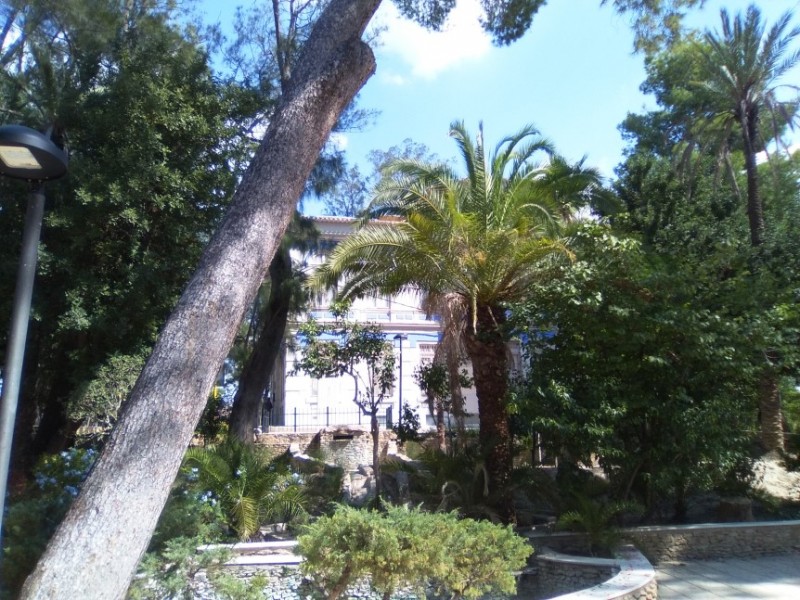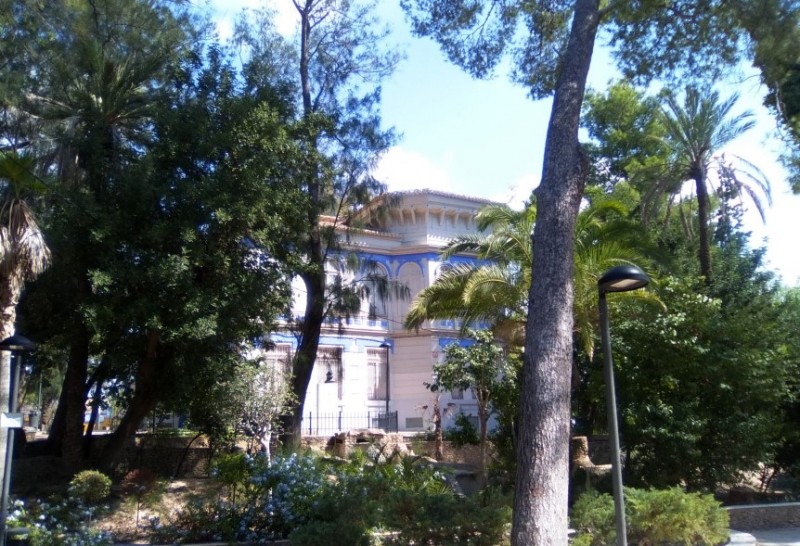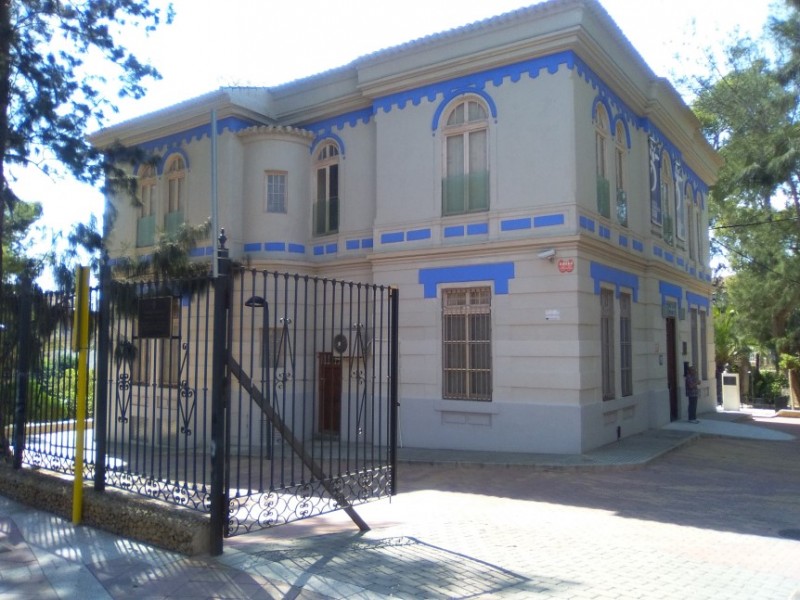- Region
- Vega baja
- Marina Alta
- Marina Baixa
- Alicante
- Baix Vinalopo
- Alto & Mitja Vinalopo
-
ALL TOWNS
- ALICANTE TOWNS
- Albatera
- Alfaz Del Pi
- Alicante City
- Alcoy
- Almoradi
- Benitatxell
- Bigastro
- Benferri
- Benidorm
- Calosa de Segura
- Calpe
- Catral
- Costa Blanca
- Cox
- Daya Vieja
- Denia
- Elche
- Elda
- Granja de Rocamora
- Guardamar del Segura
- Jacarilla
- Los Montesinos
- Orihuela
- Pedreguer
- Pilar de Horadada
- Playa Flamenca
- Quesada
- Rafal
- Redovan
- Rojales
- San Isidro
- Torrevieja
- Comunidad Valenciana
The Palacete de Villa Rías, home to the esparto grass museum of Archena
The former stately home and gardens were built by the Vizconde de Rías in the late 19th century
The Palacete de Villa Rías is a palatial residence which was built on 5,500 metres of land in the centre of Archena in the late 19th century, when it was commissioned by José Bustos y Castilla, the Vizconde de Rías.
It was the Viscount’s family who had acquired the Balneario thermal spa resort of Archena in the 1850s after it was officially confiscated from the military and religious Order of San Juan, and who converted the spa resort into the most popular in Spain after the railway made Archena more accessible from the rest of the country. (See History of Archena)Although he had another residence in the city of Murcia, he required a summer retreat and chose Archena as the most appropriate location.
It has been speculated that the architect who designed the Palacete de Villa Rías was the Vizconde’s friend Justo Millán, who also designed the Teatro Romea and the Teatro-Circo Villar in Murcia as well as the bull rings of Murcia, Lorca, Cieza and Abarán. However, no documentary evidence has yet been uncovered to confirm or deny the idea.

Almost as important as the building itself to the aristocratic occupants were the gardens, and these still stand out as an idyllic setting in the heart of Archena. In fact, they are better maintained than the Palacete itself, and are filled with eucalyptus trees, carobs, jacarandas, a pergola, a waterfall and numerous plant species.
In 1956 the Palacete came into the hands of the Town Hall, and this is when the gardens became a public park, while the stately home was converted into a medical centre. It was later a residence for the elderly and for a while in the early 21st century the ground floor was brought into service as the tourist information office, but now it is home to the Museo del Esparto, a charming little esparto grass weaving museum which proves very popular among visitors to the Ricote valley.
Unfortunately the upper floor of the building has been allowed to fall into disrepair, and its former splendour is appreciable only from the outside, but the gardens and the exterior provide an insight into the wealth and luxury in which the owners of the thermal spa of Archena (and many of those who stayed there) lived over a century ago.

How to get to the Palacete de Villa Rías in Archena
The Palacete de Villa Rías, which houses the Museo de Esparto, is in the large shady public park alongside the Plaza 1 de Mayo in the centre of Archena.
For those approaching Archena from the A-30 motorway the advice is simple: follow the signs for the town centre from the exit at kilometre 121 of the motorway, entering the town on the MU-522. This takes you over the River Segura on the iron bridge and directly onto the main street, and at the top of the hill the gardens of Villa Rías are on the right.
Parking is normally available in the residential streets just past the park.
Click for further information about the Archena municipality



